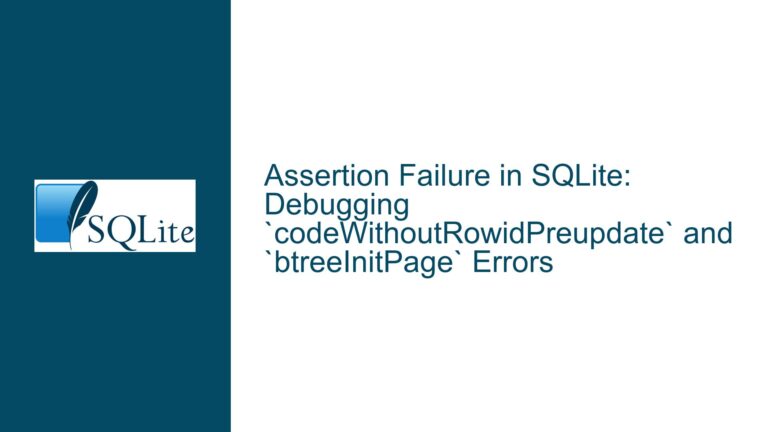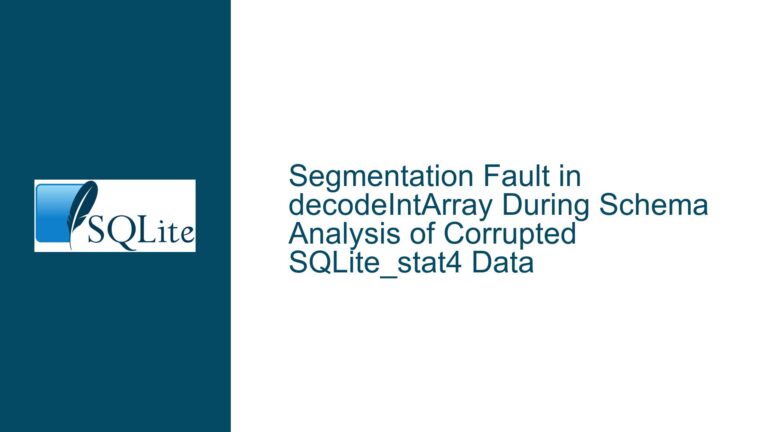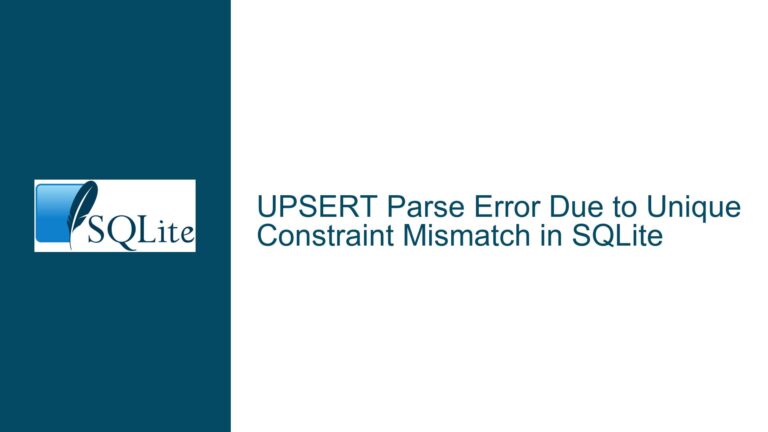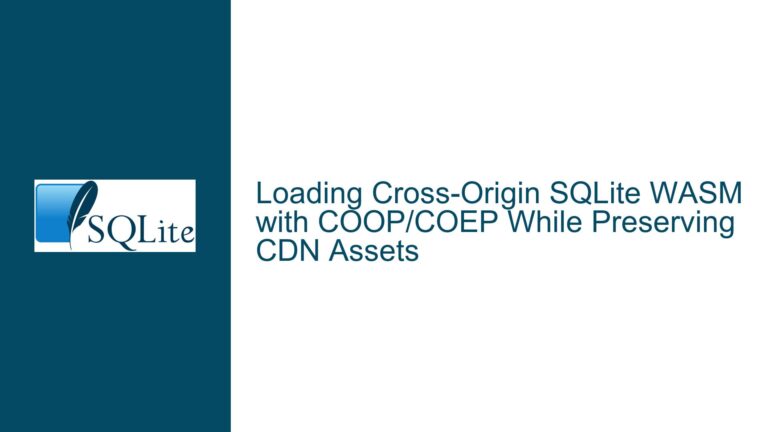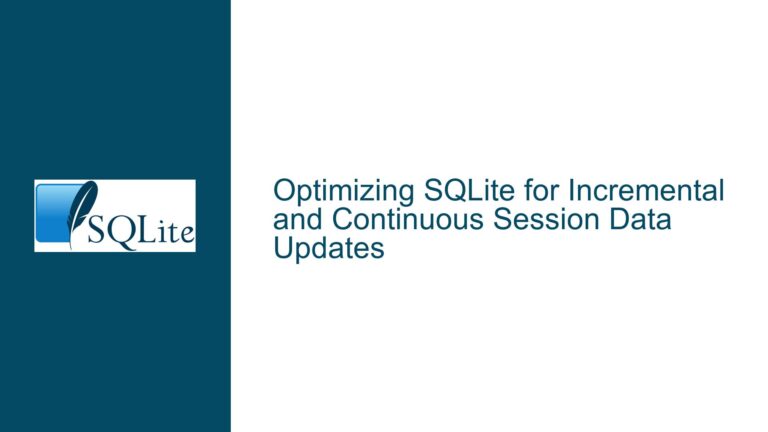Assertion Failure in SQLite: Debugging `codeWithoutRowidPreupdate` and `btreeInitPage` Errors
Understanding the Assertion Failures in codeWithoutRowidPreupdate and btreeInitPage The core issue revolves around two assertion failures in SQLite: one in the codeWithoutRowidPreupdate function and another in the btreeInitPage function. These assertions are triggered during specific operations involving table creation, schema manipulation, and vacuuming. The errors suggest that the database may be in a corrupted state…
